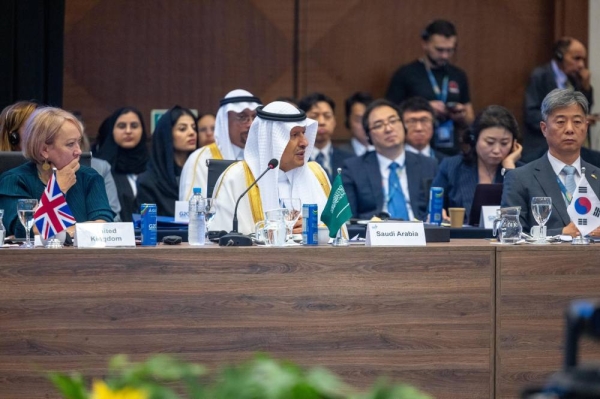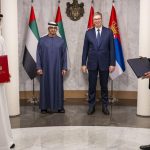At the Energy Transitions Working Group meetings in Brazil, Saudi Arabia’s Minister of Energy, Prince Abdulaziz bin Salman, highlighted the importance of balancing economic growth, energy security, and climate change mitigation. The minister emphasized Saudi Arabia’s commitment to leading global efforts in Carbon Capture, Utilization, and Storage (CCUS) technologies, as well as its adoption of circular carbon economy technologies. He also expressed the Kingdom’s ambition to become a global leader in clean energy production and export.
Prince Abdulaziz mentioned the Kingdom’s growing renewable energy capacity, which is expected to reach 44 gigawatts by the end of 2024. He also discussed plans for a hydrogen production hub in Ras Al Khair Industrial City and a large-scale carbon capture and storage project with a capacity of 9 million tons annually by 2027. These initiatives align with the Kingdom’s overarching goal to promote sustainable energy policies and support equitable energy transitions, in line with G20 efforts to drive environmental sustainability and enhance international collaboration in clean energy technologies.
The discussions at the Energy Transitions Working Group meetings focused on promoting clean energy technologies and advancing sustainable energy policies. The forums also emphasized the importance of supporting equitable energy transitions to ensure that all countries have access to clean and reliable energy sources. By fostering international collaboration and driving environmental sustainability, the participants sought to address the pressing challenges of climate change and energy security.
In his participation in the forums, Prince Abdulaziz reiterated Saudi Arabia’s commitment to leading global efforts in clean energy production and export. The minister emphasized the Kingdom’s leadership in Carbon Capture, Utilization, and Storage (CCUS) technologies, showcasing its adoption of circular carbon economy technologies. These initiatives underscore the Kingdom’s dedication to achieving a balance between economic growth, energy security, and climate change mitigation, while also promoting sustainable energy policies and supporting equitable energy transitions.
The Kingdom’s plans for a hydrogen production hub in Ras Al Khair Industrial City and a large-scale carbon capture and storage project highlight its commitment to advancing clean energy technologies and reducing carbon emissions. By investing in renewable energy capacity and promoting sustainable energy policies, Saudi Arabia seeks to position itself as a global leader in clean energy production and export. These efforts align with the Kingdom’s vision for a more sustainable and environmentally-friendly energy sector, in line with international goals for mitigating climate change and promoting energy security.
Overall, Prince Abdulaziz’s participation in the Energy Transitions Working Group meetings in Brazil underscores Saudi Arabia’s commitment to leading global efforts in clean energy production and export. The Kingdom’s initiatives in Carbon Capture, Utilization, and Storage (CCUS) technologies, renewable energy capacity, hydrogen production, and carbon capture and storage projects demonstrate its dedication to advancing sustainable energy policies and supporting equitable energy transitions. By collaborating with international partners and driving environmental sustainability, Saudi Arabia aims to address the challenges of climate change and energy security while promoting clean energy technologies on a global scale.










